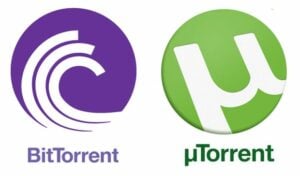Sure, we’ve all heard of torrents and the damage that they cause. Most of us tend to steer clear of anything relating to torrent.
But why? What is torrenting exactly, and why does it have such a bad reputation?
Torrenting 101
Most downloads that are performed are known as “direct downloads.” On the other hand, a tracker (torrent) takes the file as a whole, then proceeds to dice the file into what is known as a “packet.” We, the “seeders,” while downloading whatever file we have chosen, be it a movie or a game, is also simultaneously uploading that same file into the system.
Some users tend to be “leechers,” which means that though you are downloading said file, you have disabled simultaneous upload, which is often frowned upon in the torrenting community.
Pros
It’s hard to deny the pro’s when they’re so blatant. Download any movie you like, regardless of when the release date was. Browse through hundreds of songs until you find the one that takes you back to your high school prom night. Then, thanks to torrenting, you could download that song and take it with you for whenever you need a quick sense of nostalgia.
Any gamers joining us? Pick and choose from thousands of games across several different platforms. I’m talking to all my sports fans, my shooter game fanatics, the “Fortniter’s” and deer hunters alike. Think of a title, click download, and give patience a shot. Before you know it, you’ll be bored no more.
Cons
Now comes the ‘not so’ fun parts. When downloading a torrent file, internet speeds tend to slow dramatically. The average internet subscriber will notice a big change in internet speed, and the file may seem to take forever to download. You lucky folks with the super high-speed internet will notice a change, but hardly enough to crinkle the forehead about.
Though torrenting is technically not illegal, since it is simply a way for peers to file share, most files that are downloaded tend to be copyrighted material. Because of copyright infringement, and the frequency of files downloaded that are copyrighted, torrenting has fallen under the dark umbrella of the internet.
Because of this, we recommend the use of VPN.
VPN’s provide a sense of security; security from hackers as well as from.. uhm.. law enforcement. It’s like that huge blanket with the painting of a wolf that your grandma bought at the swap meet last fall. You figured, “ Pfft! We have a heater, I highly doubt that’s necessary!” Come winter time the heater isn’t pulling enough heat, but you’re gratefully tucked underneath that blanket, thanks to some protective thinking.
A VPN is that security blanket. The VPN takes your IP address and hides it behind another IP. Only the VPN provider can see what IP address was being used before the VPN is switched on. To the world, you’re using a computer that’s in Vancouver, not in Albuquerque. The VPN also does a great job at hiding your download and upload trails, which comes in handy when torrenting.
I recommend you take a look at IPBurger, which is what I currently use. Their most popular (and most beneficial) subscription plan costs less than $10 a month and promises to give you your very own “dedicated and fresh IP address,” which is what caught my attention most.
How to Use Torrent
If after outweighing the negatives and positives you find yourself wanting to know how to use torrent, read on.
- You’re going to need a “client.” I tend to stick with the most popular clients, being: BitTorrent, UTorrent, and Deluge. In the search bar, check to see if VPN turned on, you can search each of those names respectively, and decide for yourself which one you should download.
- Back to your search bar. KickAss Torrents, The Private Bay, and RARBG are among the top sites used. Download whichever tickles your fancy.
- Choose the file you want to download through your torrenting site, and add it to your client, for me being UTorrent.
- Hit the download button, whatever it may be addressed as, and wait patiently.
- Save and Viola! You can now enjoy your favourite program.
Conclusion
Torrenting could be good or bad, depending on how you wish to use it. Either way, we suggest using a VPN service such as IPBurger to ensure your online security. Keep your online surfing private, whether you’re torrenting or not. You never know who’s on the other side of the screen.




